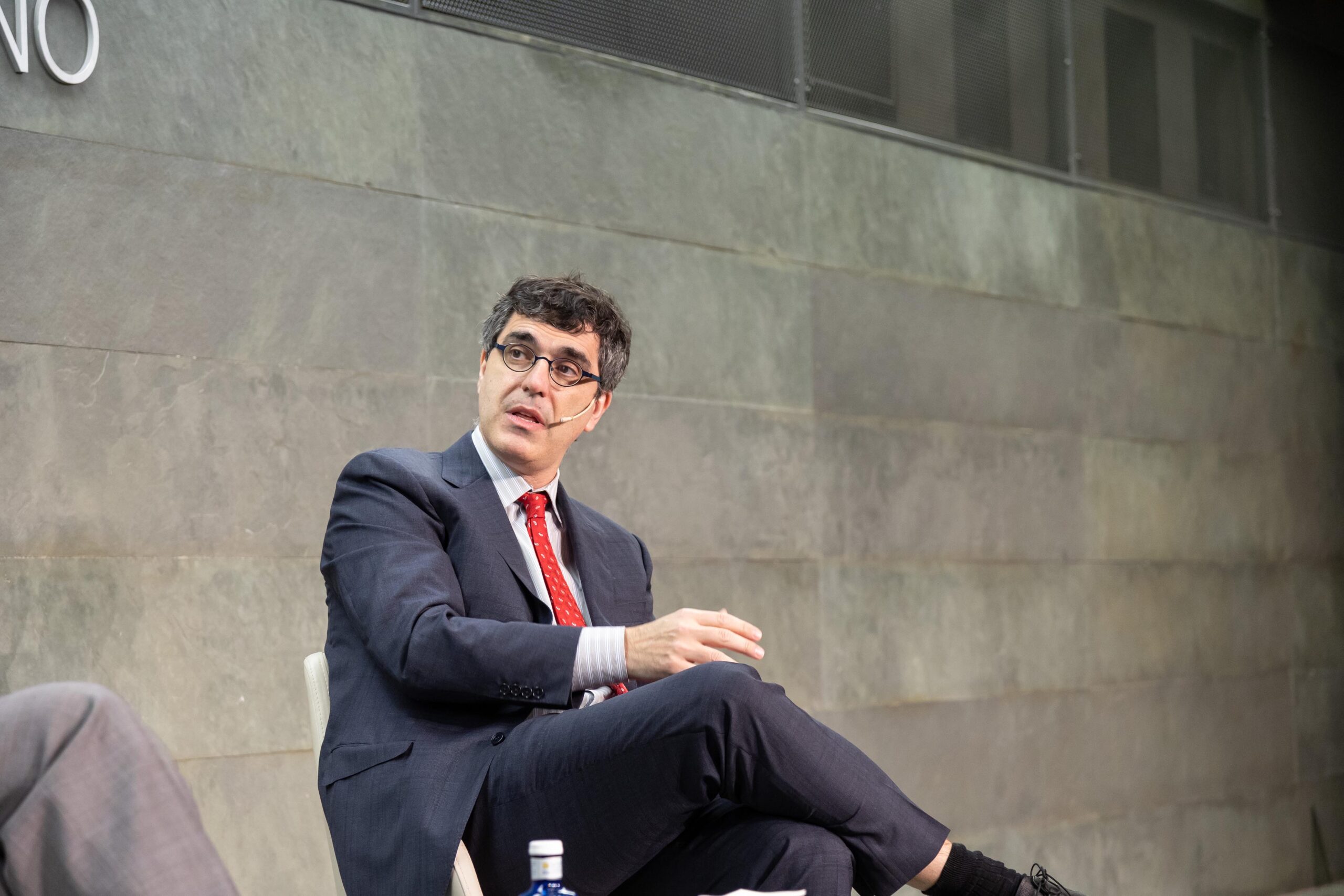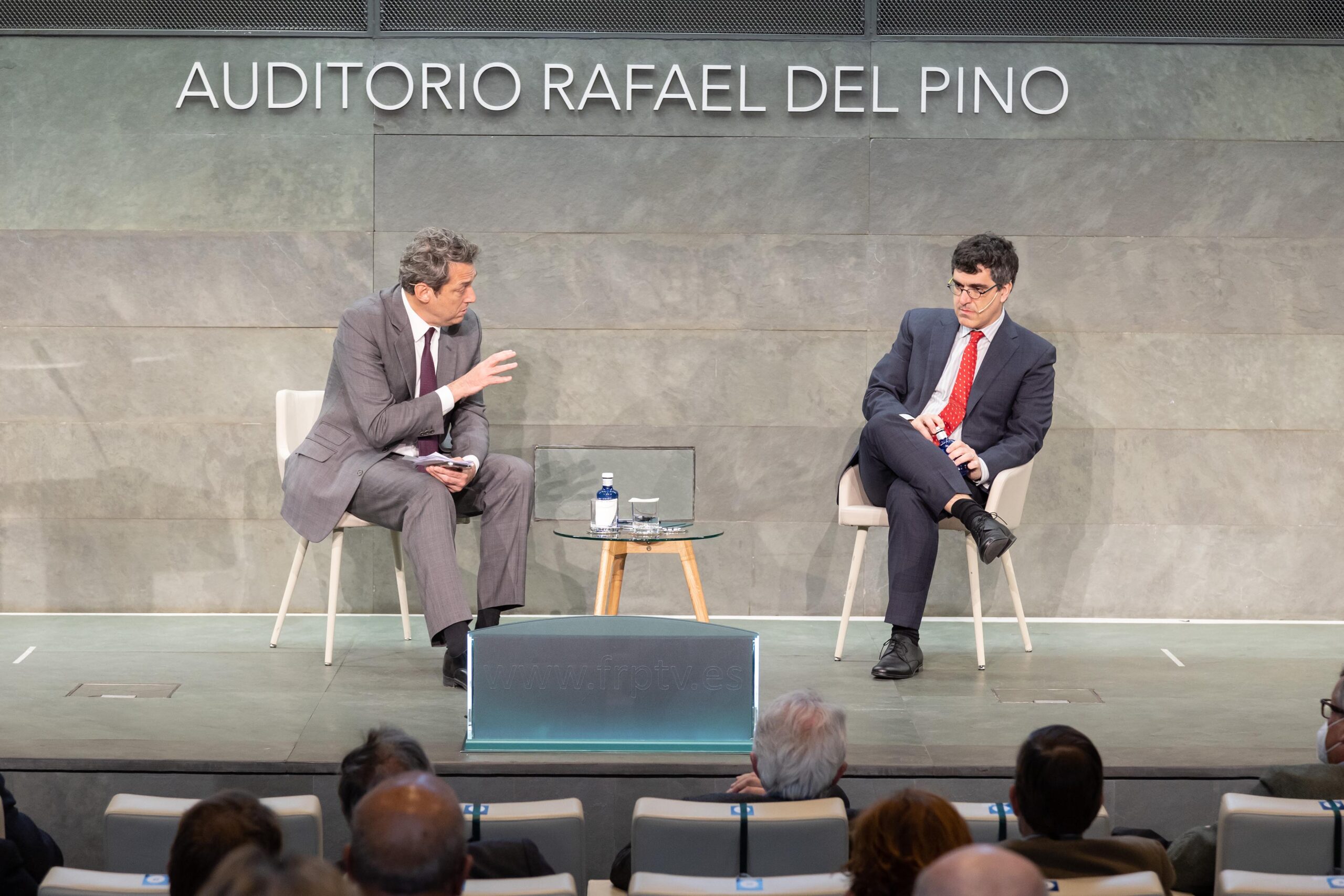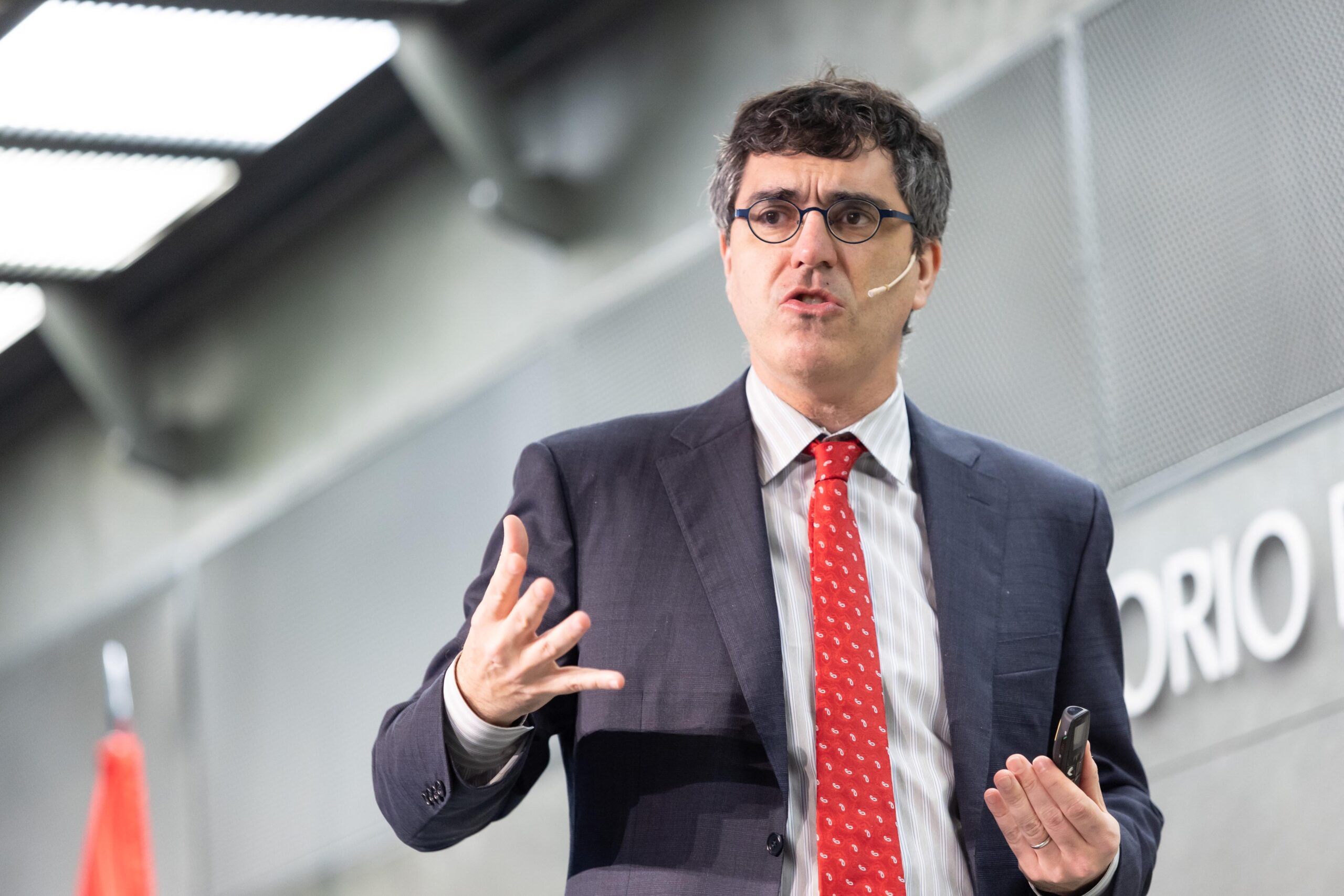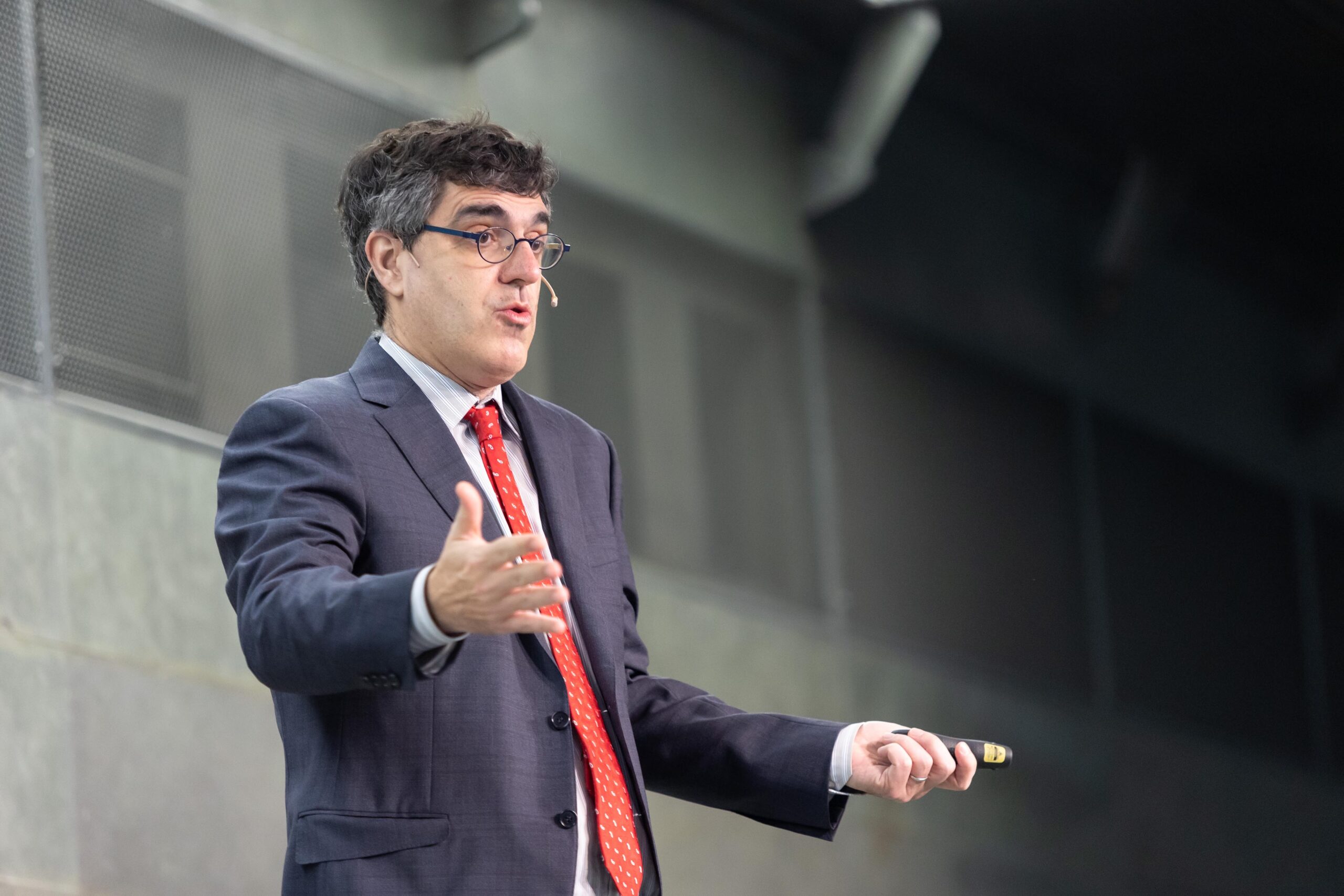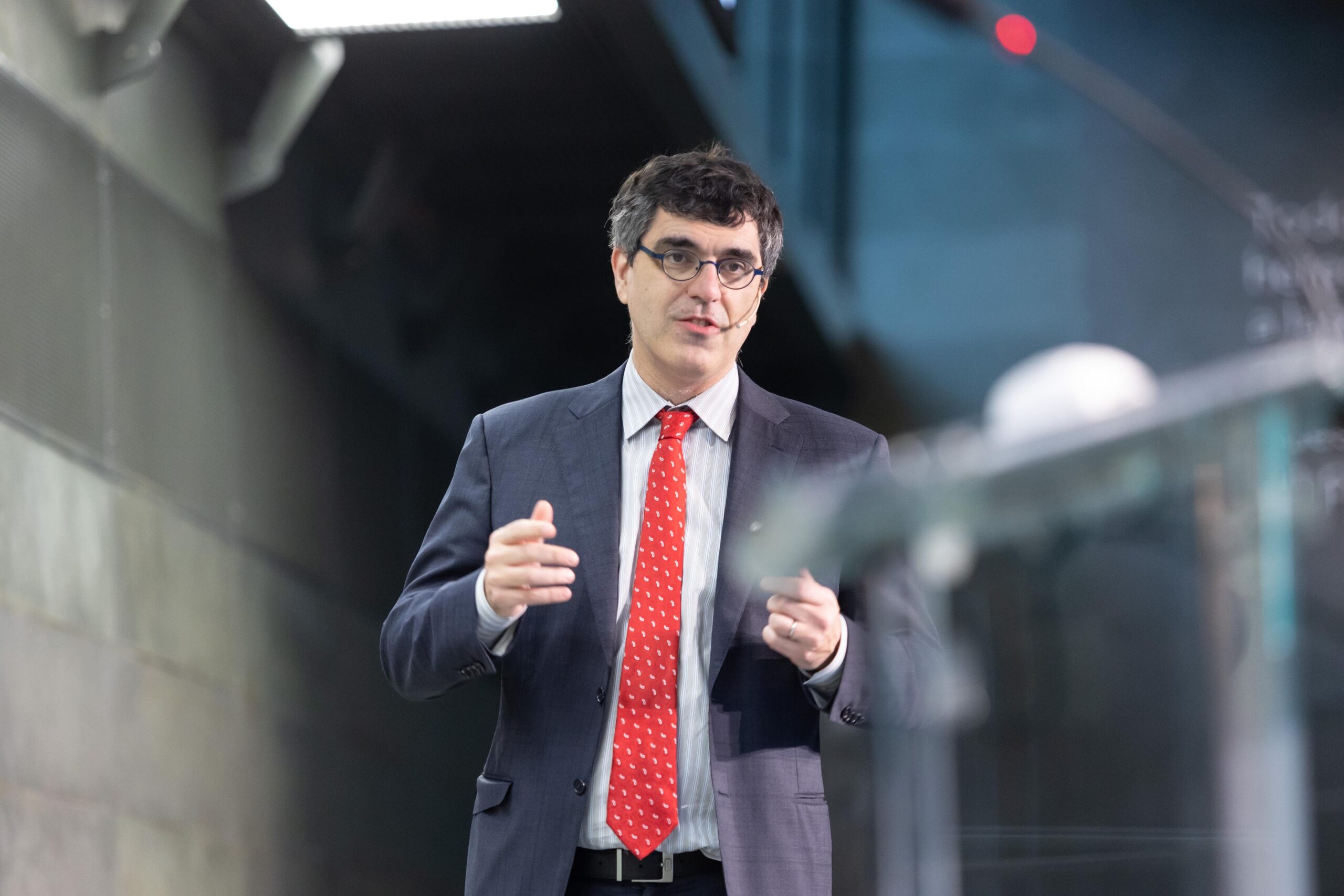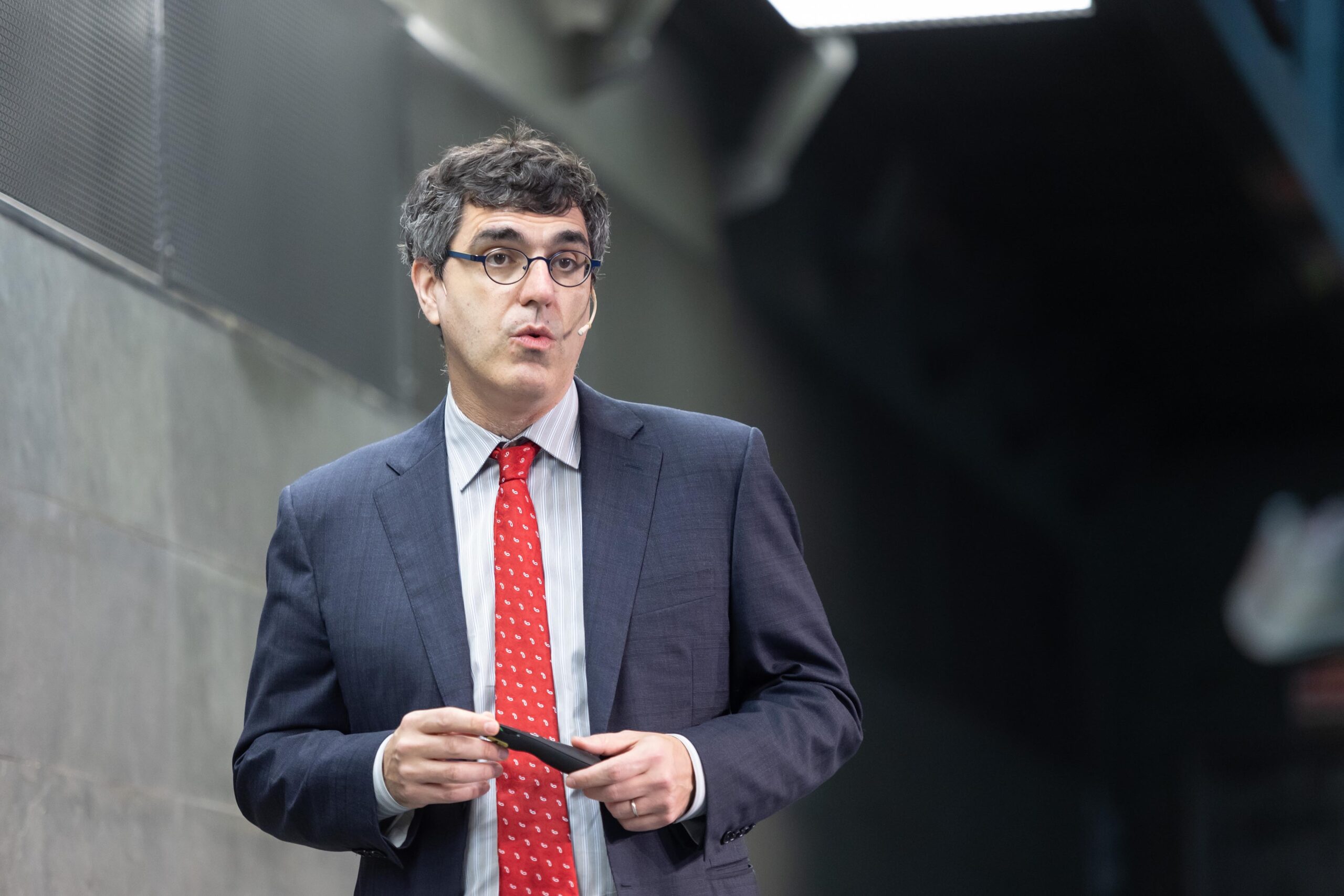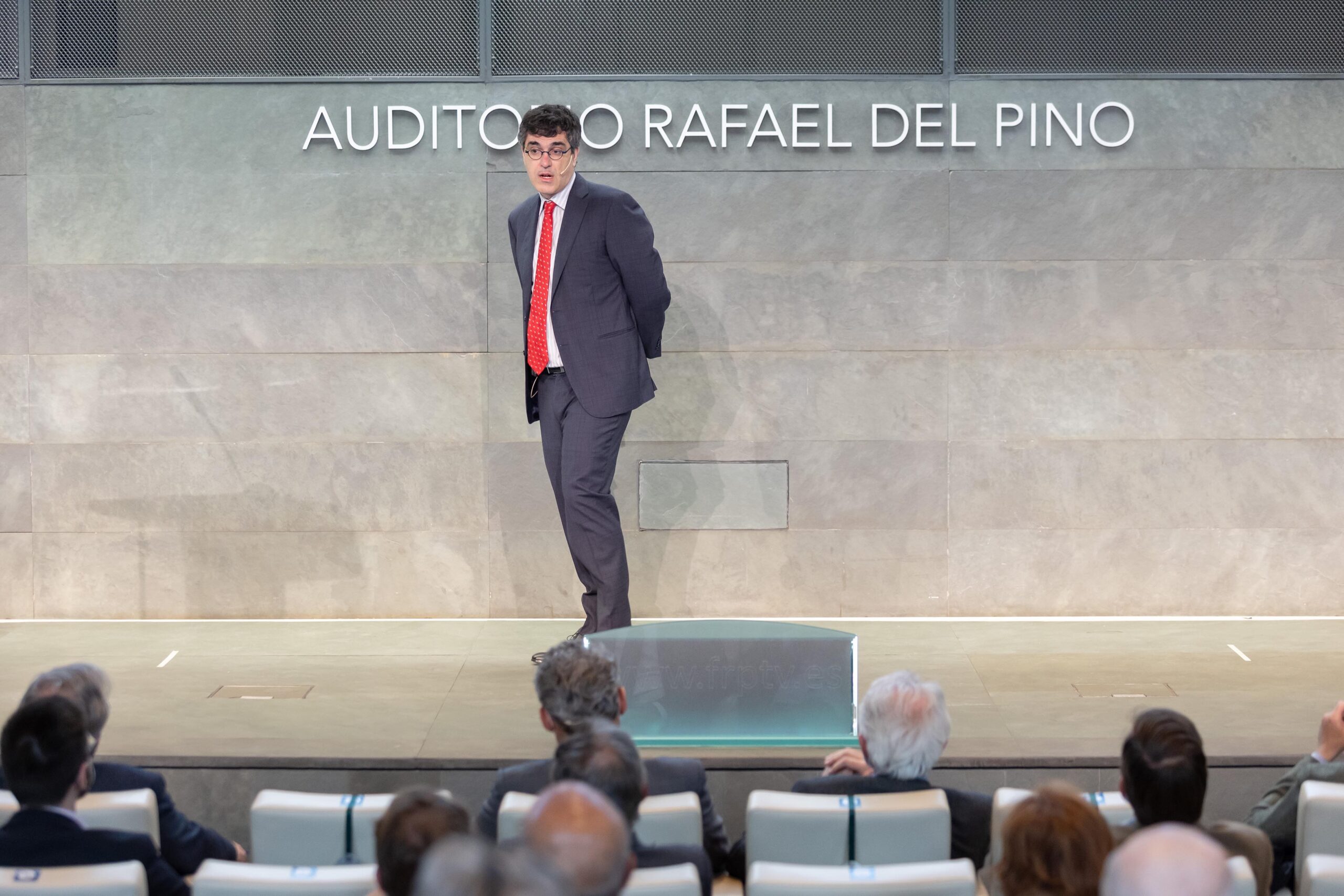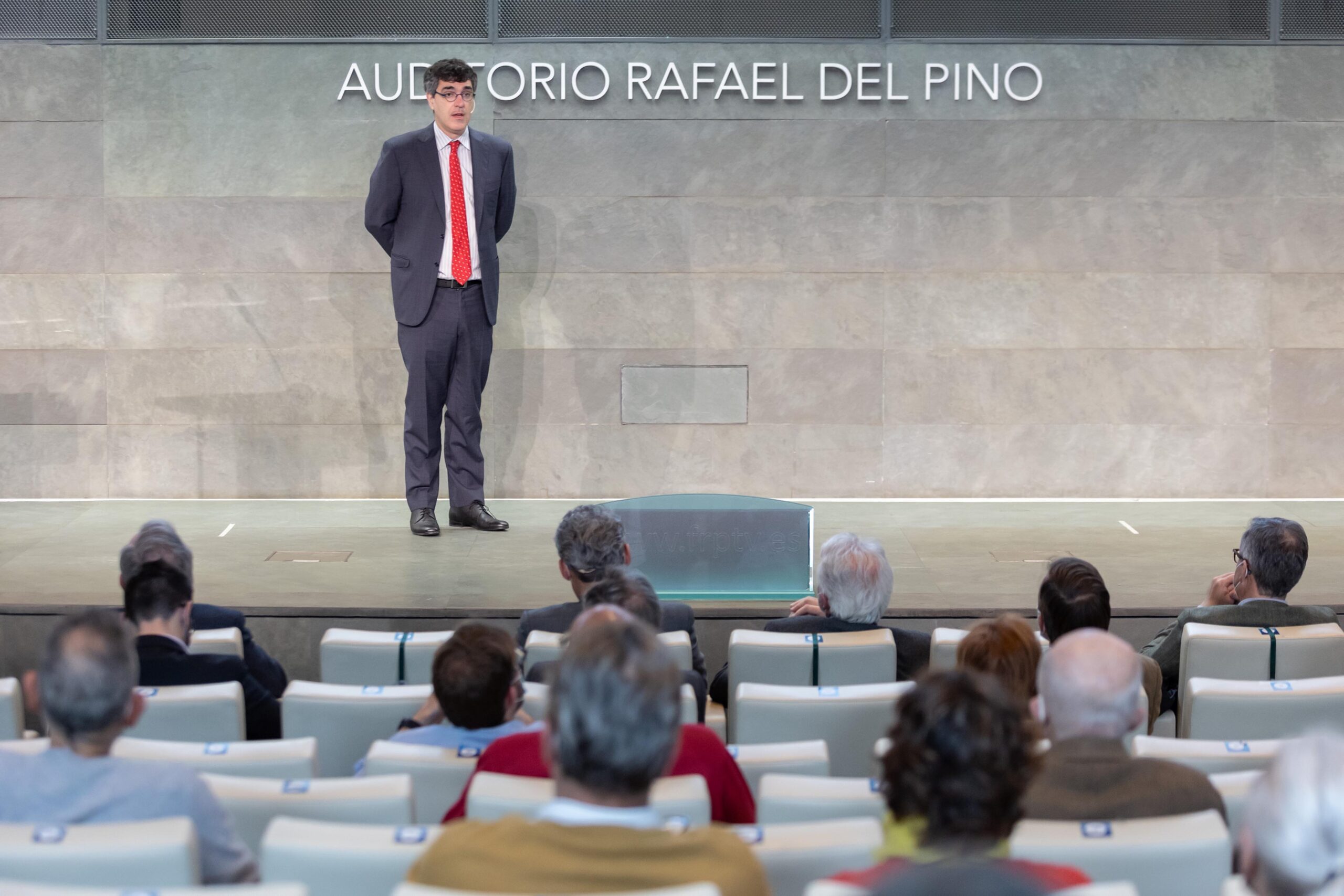Leadership, economic efficiency and democratic quality in Spain: what do we want to be in the global scenario that is taking shape?
Summary:
On 31 March 2022, the Rafael del Pino Foundation organised a conference by Jesús Fernández-Villaverde, Professor of Economics at the University of Pennsylvania, entitled "Leadership, economic efficiency and democratic quality in Spain: what do we want to be in the global scenario that is taking shape?
GDP is a measure of the amount of goods and services we produce in a year. Although it does not capture everything, it is a good approximation of the welfare we generate. In 2021, the average Spaniard produced 23,000 euros and a little more, the same as in 2005. This figure is corrected for inflation. In other words, from 2005 to today, our economy has not grown. That is sixteen years. We are no longer talking about a lost decade, we are on the way to the silver jubilee of a lack of economic growth.
In the short term we have a very difficult scenario because of the war in Ukraine. We have a very high level of uncertainty associated with this war, with the price of energy and the associated inflation. In the medium term we are going to see a sharp rise in interest rates in Europe which is going to put us in a very difficult situation. In the long term we have the demographic collapse we are facing and the need to decarbonise the Spanish economy, which is highly dependent on energy imports from abroad.
These have been difficult years. We have lived in a time of almost permanent crisis, but being prepared for crises is part of the job of economic policy. And yes there are other nations that have grown in GDP per capita since 2005, for example Ireland, which has grown by 79%. Germany has grown by 18.7%, the United States by 17%. Japan with its demographic problems has grown by 7.8%. Even our Portuguese neighbours have grown by 7%. If Portugal has been able to grow, why can't we?
In terms of GDP per capita, Spain is poorer than the United States in 1972. Spain today is seen as a more backward country than the United States, it has the same level of GDP per capita relative to the United States as in 1870. It has not been able to close the gap. We have gone from 2% to only 1.37% of the world economy. We are becoming less and less important, we are going to become a peripheral country that matters less in decision-making.
In 2005, 19.2 million Spaniards worked; in 2021, 19.6 million. Our production capacity has not grown, we are not more productive now. This is bad because the global production frontier has continued to grow. Despite having much better technology, we are not able to produce more. We are missing out on the opportunities offered by technological advances. Unemployment has risen from 8% to 16%. The structural deficit in 2005 was 3.43%, in 2021 it will be 5.3%, corrected for the effects of COVID. Public debt has risen from 42% to around 120%. We produce the same, but we have more unemployment, more deficit and more debt.
In addition, the next few years are going to be very difficult. Inflation is at 9.8%, at the level of the mid-1980s. It is caused by the war, but it is also a consequence of misreading the lessons of the 2008 financial crisis, which was a demand crisis. What we are dealing with now is a supply-side crisis. When you have a very aggressive fiscal and monetary policy with a lack of demand problem, this helps the economy. But when the problem is supply-side, those policies generate more inflation. So it is no surprise that we find ourselves in this situation.
In addition, there is a problem of regulation. Many of the ideas of the 2008 crisis are very different from the changes that are needed for a crisis like the current one. We are in a very similar scenario to the 1973 crisis, with the first oil shock. That huge spike in oil prices hit many Western economies, especially the Spanish economy, which was very energy-intensive, for example, shipyards. At that moment, which generated stagflation, we reacted in a profoundly incorrect way. Instead of adjusting to the new reality, all adjustments were postponed. Economic policy was used to deny reality, because we were in a very complicated political situation, with the last years of Franco's regime and the Transition. Only with the Moncloa Pacts is it accepted that we have to adjust to the new reality. The decisions of the last few weeks are exactly the same as those taken in the autumn of 1973: one, to deny reality; two, to take measures in the Council of Ministers that are going to make headlines in order to win votes. The irresponsibility that was committed in 1973 was less than the irresponsibility we are taking now. During the dictatorship there was no accumulation of public debt. Now we have a 120%. If we try to solve this by public spending we are not doing what needs to be done. We don't have an independent monetary policy. Since 1973, much of the adjustment was done with devaluations, but now we don't have that possibility. Moreover, we have horrendous demographics. In 1973 it was favourable, but now it's going to get worse and worse. What I hope will save us is Europe, not so much because of the money, but because Europe will try to control our politicians.
In addition, we are facing the prospect of a profound de-globalisation of the world economy, as a result of COVID, war and economic policy decisions. The world of the last 25 years may disappear in part. This will lead to a very complicated situation because Spain is a very open economy. It lives from tourism and from producing automobiles, from the automobile value chains. If we go to a de-globalised world, what are we going to do? There is also the problem of foreign energy, because we have not had a serious energy policy for forty years.
In particular, we have to start distinguishing between crisis management and planning for the future. The current situation requires solving a problem, but there is also a problem of thinking about what I want the Spain of 2050 to be like, what I have to do to make it a prosperous nation. Since the financial crisis we have focused only on the former, on the day-to-day management of the Council of Ministers. Every government since 2008 has fallen into the temptation of using the crisis to avoid thinking about long-term policy, and Spanish society has consented to this. It has not been a government imposition. Most Spaniards have been very happy with this strategy.
None of this has come as a surprise. In 2014 I was already pointing to the risk of a lost decade and the need for reforms. There have been no major reforms after the 2012 labour reform and the fiscal consolidation process was halted in 2014. Since then, we have gone backwards and are in a worse situation. This is, to a large extent, a reflection of the opinion of many voters. At the same time, it is no excuse for leaders, because a leader has to go ahead, to explain to Spaniards why the instincts not to reform are wrong. Charles De Gaulle told the French what they did not want to hear, but it was what France needed and that is why France has what it has. In 2015 we had a window of opportunity of three to four years, because at the end of them the bad times will come back. It was COVID that took us ahead and we had done nothing. In 2016 I talked about fiscal sustainability and we have done nothing about it. What the Covid-19 crisis showed us is that the Spanish authorities were not prepared for it. The worst country in terms of data was Spain.
This can happen for three reasons. One is that we have bad luck. If you constantly have bad luck, maybe it's not bad luck. The second possibility is that Spain is full of Spaniards, but I don't believe this possibility because when we are given the opportunities we do as well or better than other people. When we are in the right institutional framework we do very well. Spain's problem is that the structure determines the results. Things do not happen by chance. There is a political-administrative structure that has generated a series of incentives so that the specific decisions that Spain needs are not taken. This structure has led to a deteriorating quality of democracy and increasingly poor economic efficiency. There is nothing that better reflects the problem of our democracy than the abuse that has been made over the last twelve years of the royal decree law, which is to legislate without the Cortes. Or the absolute pantomime of the labour reform. This is not the way a country can function.
What we are facing is the systemic problem of elite formation and selection. From primary education to the leadership of our political parties, we have created structures that do not train and select the right leaders, because they do not have the courage to explain to the Spanish people what Spain needs. The system is designed to select the worst, those who know how to navigate the system. And this is getting worse as time goes by. Even if we were to change institutions now, we would have to wait until 2030 for this to begin to be noticed. That is why it is so important to start doing things now.
Education is the fundamental problem at the heart of everything we encounter. We have a bad education system. Spain is 35th in mathematics in the PISA report. We are 31st in science and in reading we are not classified because we cheated and the Spanish exams were annulled. The deterioration of the Spanish people's ability to write, of the students' analytical ability, is very noticeable. We still have completely inadequate undergraduate curricula, because they are a reflection of the parochial interests of the departments. We have the plague of double degrees. The problem is that they trap people in a way that they cannot escape. We still don't have world-leading universities. There doesn't seem to be much concern about this issue.
We have a system for selecting administrative elites that is anchored in the needs of Spain in the 1960s. The same with education. We have to select people who will have to go abroad to defend Spain's interests. The selection must be based on criteria of objectivity, efficiency and equity.
We need to strengthen our institutions. The obvious example is how the CGPJ functions vis-à-vis the high council of the magistracy in France and Italy. There is a lack of independence of the institutions.
This leads to the final level of politics. The structure and functioning of political parties needs to be reformed, the electoral system needs to be changed and voters need to understand where we are.
The Rafael del Pino Foundation is not responsible for the comments, opinions or statements made by the people who participate in its activities and which are expressed as a result of their inalienable right to freedom of expression and under their sole responsibility. The contents included in the summary of this conference are the result of the debates held at the meeting held for this purpose at the Foundation and are the responsibility of their authors.
The Rafael del Pino Foundation is not responsible for any comments, opinions or statements made by third parties. In this respect, the FRP is not obliged to monitor the views expressed by such third parties who participate in its activities and which are expressed as a result of their inalienable right to freedom of expression and under their own responsibility. The contents included in the summary of this conference are the result of the discussions that took place during the conference organised for this purpose at the Foundation and are the sole responsibility of its authors.
